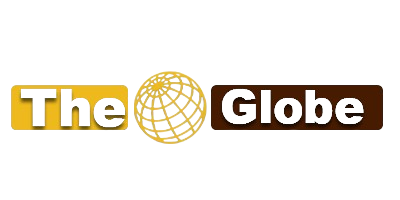A Roadmap to Setting and Achieving Essential Deadlines
Meeting project deadlines is crucial for the success of any endeavor, whether it’s a small task or a large-scale project. Establishing achievable deadlines, on the other hand, can be a significant challenge.
Missing deadlines not only hinders project progress but also impacts the overall success and reputation of a business. This topic requires thorough brainstorming, and we’ll contribute a few key tips thereby.
How to Set Efficient Deadlines
Failing to meet deadlines often leads to losing customers and revenue. This process involves breaking the project into smaller parts and estimating the time needed for each task. It is essential to identify inherent complexities, potential roadblocks, and dependencies.
Once this is done, the next step is setting milestones. This involves dividing the project into manageable segments with their own deadlines. Make sure to set reachable due dates . Consider available resources and potential challenges when setting these milestones. Smaller segments are easier to track and establish team accountability.
A crucial component of this process is consulting with stakeholders to ensure alignment and transparency regarding expectations. Additionally, it’s recommended to allocate buffer time to accommodate unforeseen challenges.
Focus on Realistic Deadlines
Efficient time management is key to meeting project deadlines. This involves optimizing resources and minimizing the risk of missed deadlines. Adopt a strategy that breaks down tasks into manageable components and prioritizes urgent parts.
Businesses often use project management tools to track progress and maintain organizational efficiency. Open communication channels are also critical, as regular updates on progress, challenges, and potential delays are essential. Flexibility and adaptability play a crucial role in promptly addressing unforeseen challenges. In other words, businesses should incorporate proven processes for best results.
Establish better communication with leaders to guard against any eventuality and make sure to heed their tips for better performance management .
Why You Don’t Want to Miss Deadlines
Beyond mere delays, missing project deadlines has severe consequences. One of the most significant downsides is damage to customer satisfaction. Customers rely on timely deliveries; any deviation from guaranteed deadlines can undermine their confidence in the business.
Missed deadlines also result in financial complications, including revenue loss and increased costs. Delays in project completion typically lead to penalties, loss of prospective business opportunities, and wasted resources. Finally, missed deadlines cause reputational damage, which can have enduring effects and is difficult to rectify. In a highly competitive marketplace, businesses cannot afford to tarnish their reputation.
Make Use of New Tech
Project management and communication tools are crucial for meeting deadlines. Here are some popular options to get you started:
- Trello: A customizable project management tool that uses boards, lists, and cards to organize tasks. It allows for setting deadlines, assigning tasks, and tracking progress.
- Asana: A popular project management tool that allows for creating tasks, setting deadlines, and collaborating with team members. It features lists, boards, and calendars to visualize deadlines and track progress.
- Todoist: A simple to-do list app that lets you organize tasks by project, set deadlines, and prioritize tasks.
- Monday.com: Offers customizable workflows, task assignments, and deadline tracking. It provides various templates for different project types and allows for easy collaboration.
- Microsoft Project: Offers features for scheduling tasks, allocating resources, and tracking progress. It’s suitable for complex projects with detailed timelines.
- Notion: An all-in-one workspace that allows you to create custom databases, task lists, and timelines. You can set deadlines, create project roadmaps, and collaborate with team members seamlessly.
- Google Calendar: An effective tool for setting deadlines and scheduling tasks. You can create separate calendars for different projects, set reminders, and share calendars with team members.
- Jira: Specifically designed for software development teams. It allows you to track tasks, bugs, and features, set deadlines, and manage agile workflows.
Finishing Touches
Businesses often overlook small steps, which can actually impact company success significantly.
We’ll hereby mention the essentials to help you pinpoint other ones:
- Maintain comprehensive documentation of all projects, including timelines, task lists, and progress reports. This helps in setting deadlines and tracking project statuses over time.
- Don’t rely solely on new tech. Traditional methods like sticky notes or physical reminders can be effective in fine-tuning your planning process.
- Set up weekly or monthly planning sessions to discuss progress and adjust timelines. This keeps communication alive and fosters a culture of collaboration.
Read also: Underpaid and Overworked: Allegations Emerge in the Smoothstack Lawsuit
By following these tips, businesses should be able to set attainable deadlines and manage projects efficiently. Don’t forget to keep communication alive, so that any issue can be addressed as soon is materializes (or, better still: before it gets the chance to materialize).







